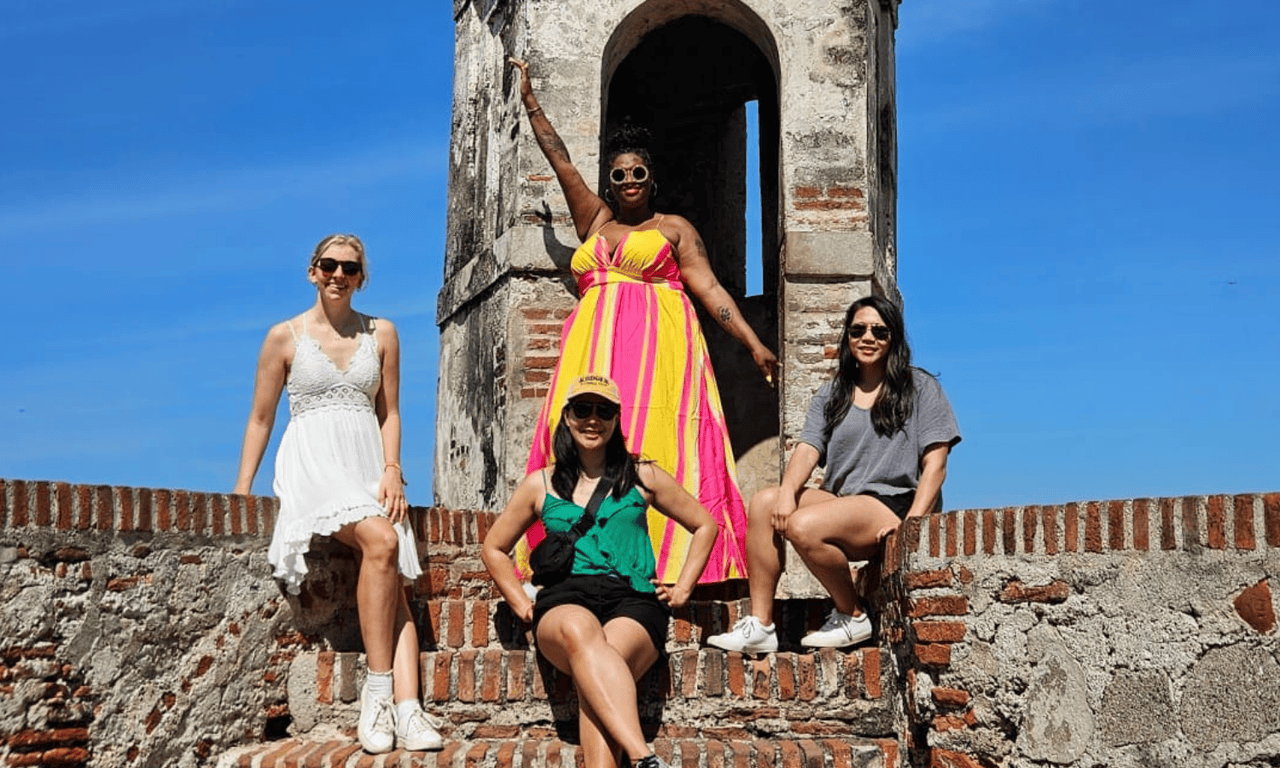Welcome to the Andes
During my recent trip to Peru, I got to visit three different parts of this beautiful country, with very different landscapes and ingredients.
Cusco, situated at 11,000 feet in the Peruvian Andes was once the greatest capital of the Incan empire and now boasts beautiful influences of Spanish architecture, like the main cathedral in the Plaza de Armas.
Wondering what to pack for Peru? This detailed packing guide covers everything you’ll actually need.
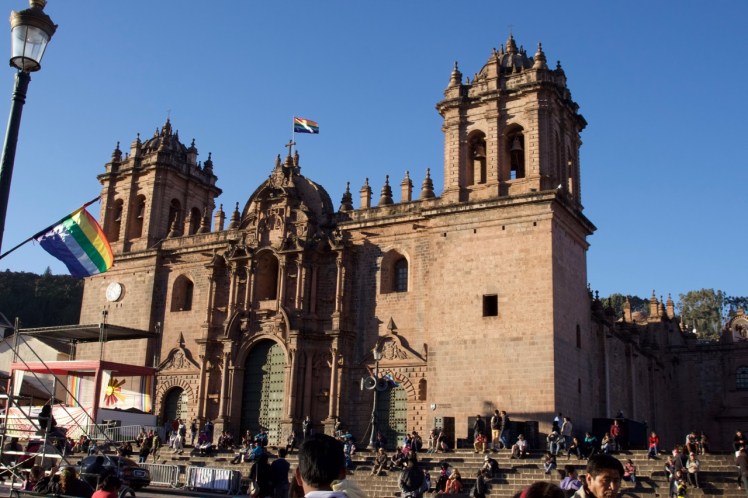
It also serves as the half-way point between the coast and the Amazonian rain forest, and has many Incan temples and a historical Incan complex called Saksaywaman, which is a UNESCO World Heritage site, along with the city itself.
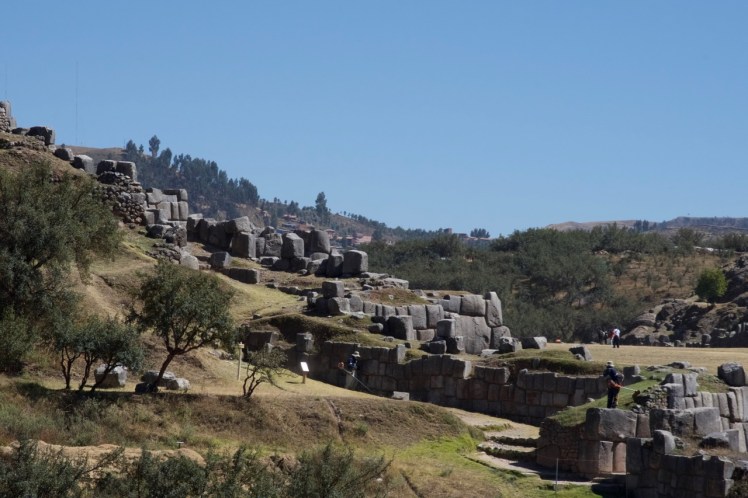
When it comes to food, it now has many international influences, as one would expect of any modern-day city, however there are a few specialties worth mentioning that are quite unique.
San Pedro Market
First and foremost, there is the San Pedro market, with everything from food to shoes and clothing, to household items. My favorite part there is an entire isle of juice-makers who will make you fresh juice practically out of any fruit you like.
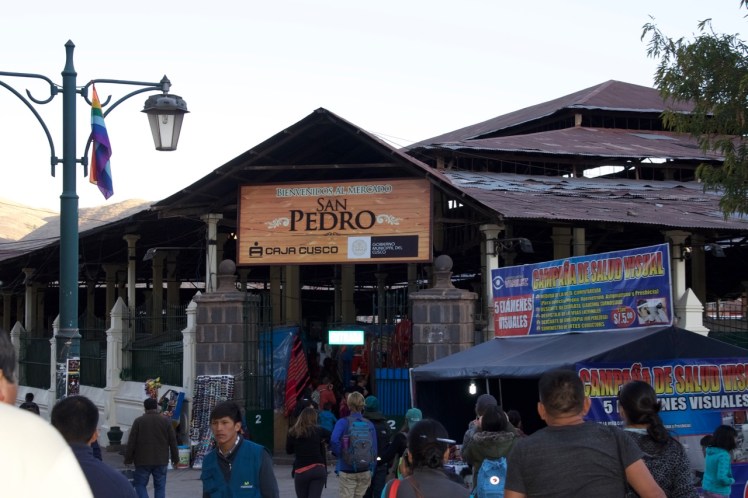
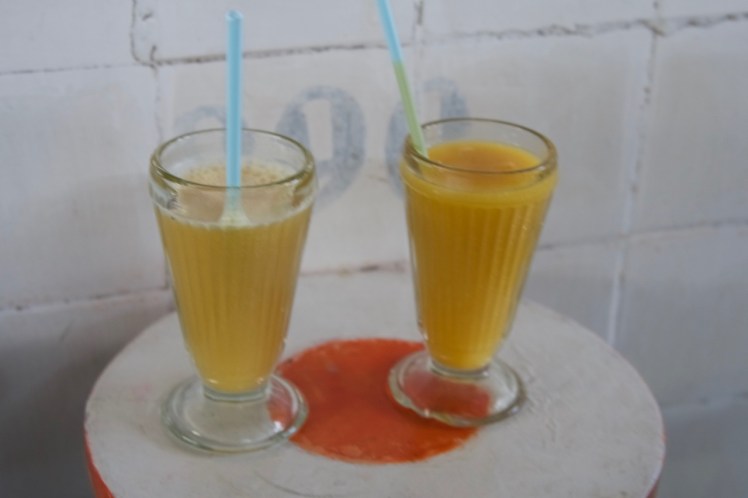
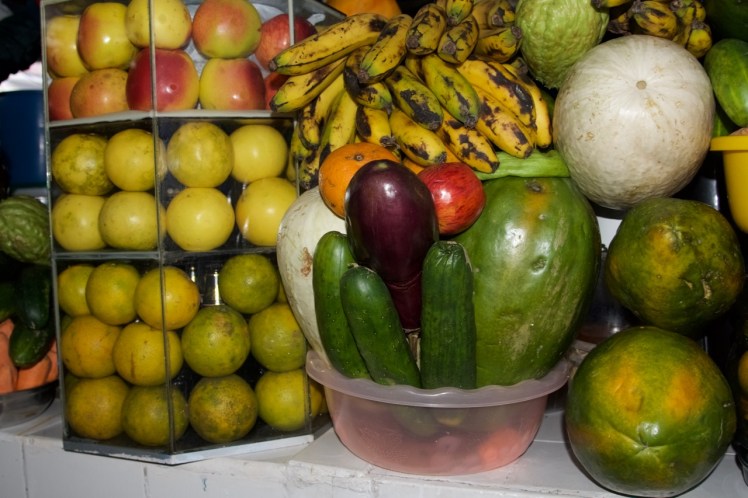
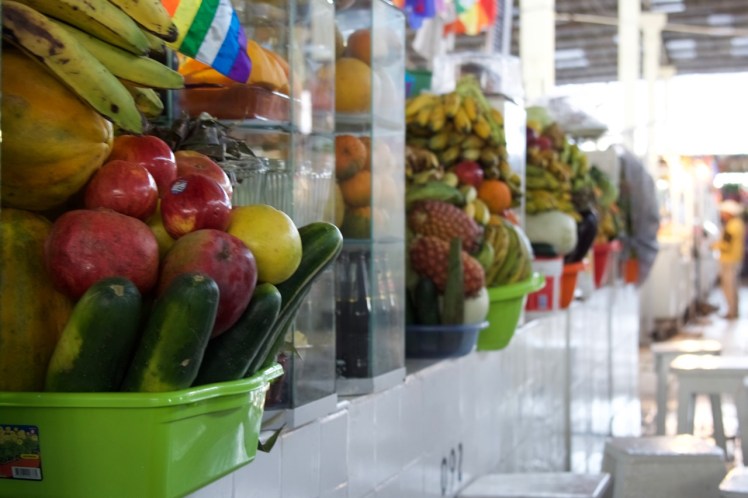
Another fascinating thing is the variety of corn you encounter, most popular one of which is choclo, or the large-kernel corn. This really paints the picture well as to why it is one of the staples of the Andean diet
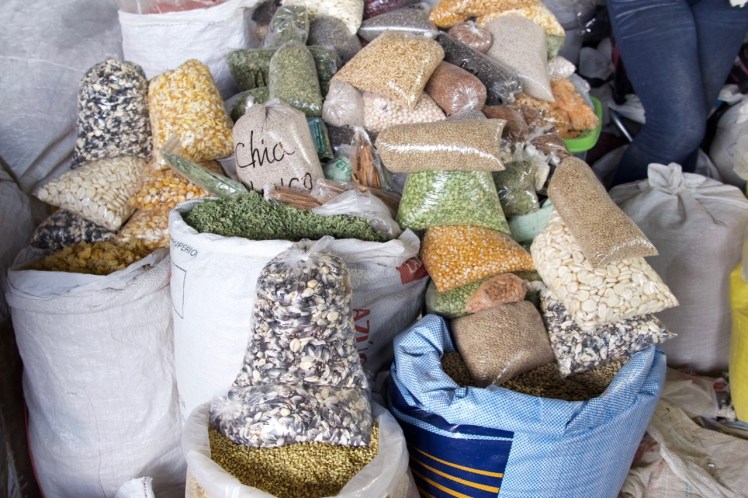
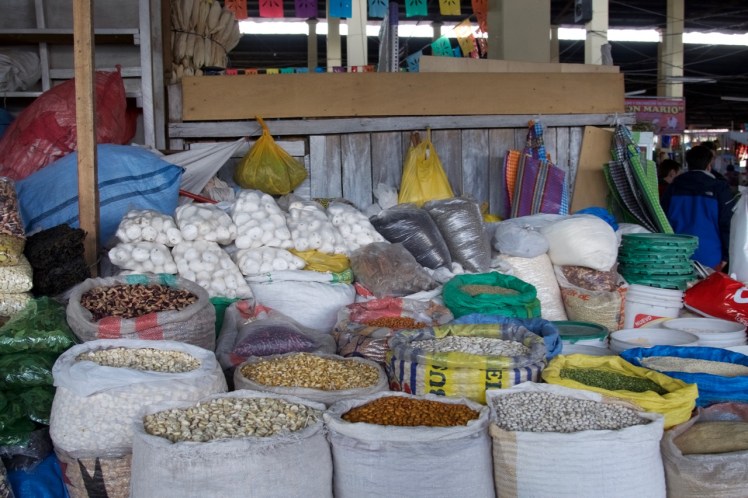
The Elevated Cusco Cuisine
I couldn’t help it…”elevated” is the most pun-tastic and appropriate word in this case.
On to the unusual things on the menu – alpaca and guinea pig. Yes, they actually serve up their furry best friends and I have to be honest, alpaca tastes pretty good, something between lamb and beef.
And people, before you post angry comments about me eating llamas, here’s the difference between alpaca and llama
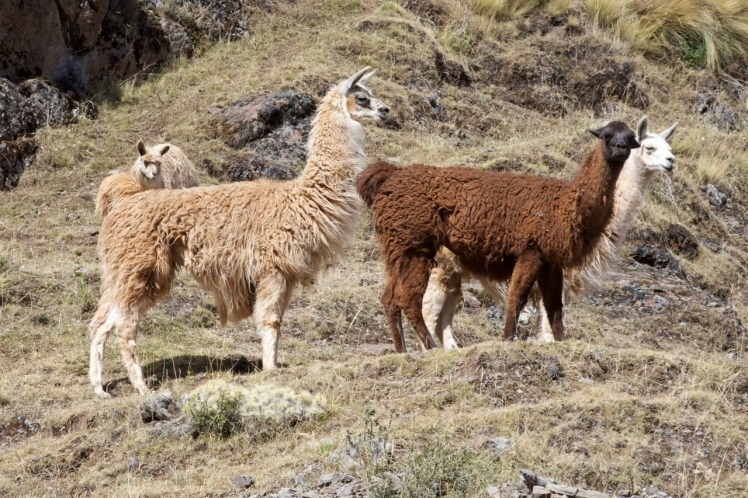
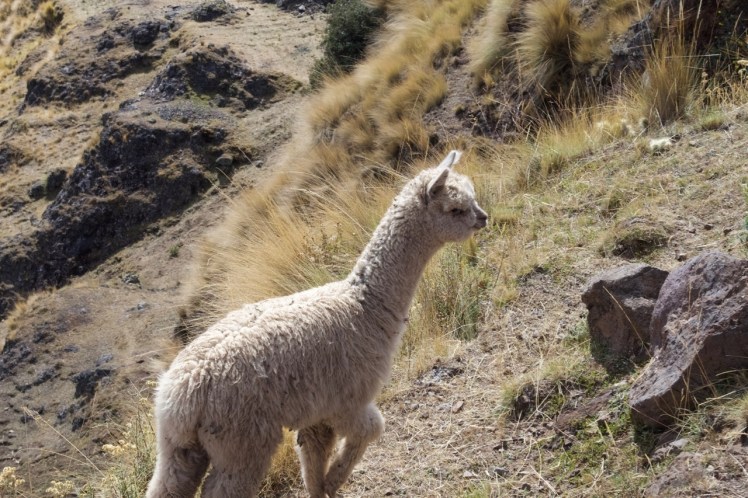
I sampled it at an Italian-Cusco fusion tapas bar called Cicciolina. Served with a bechamel-type sauce and whole peppercorns, it was quite delicious.
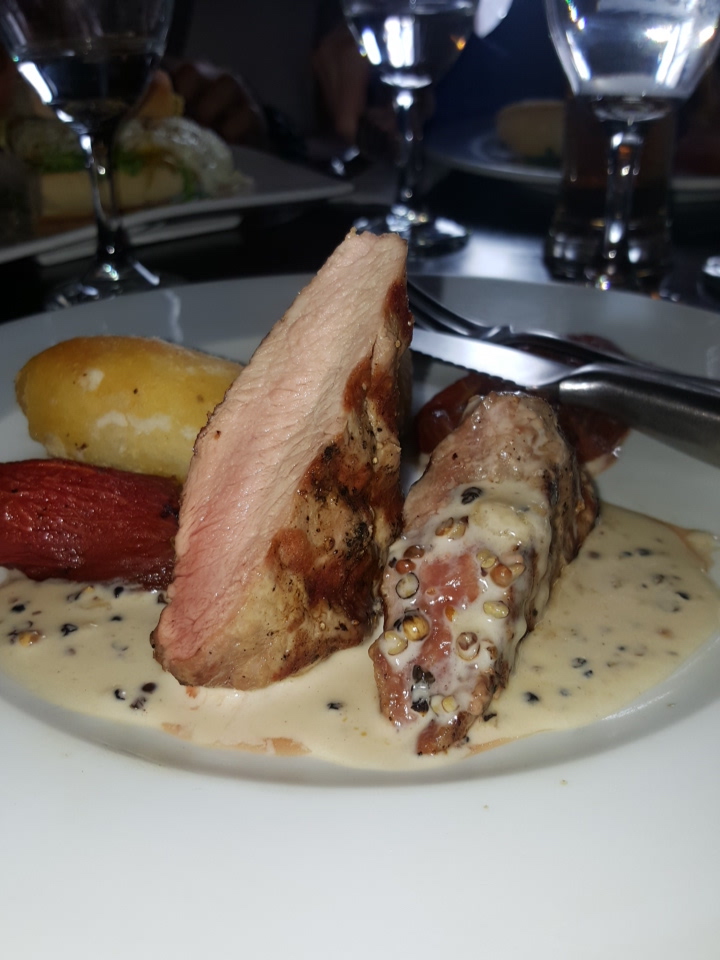
Cicciolina also boasts very tasty sandwiches, which other members of our group enjoyed for a much-deserved late lunch
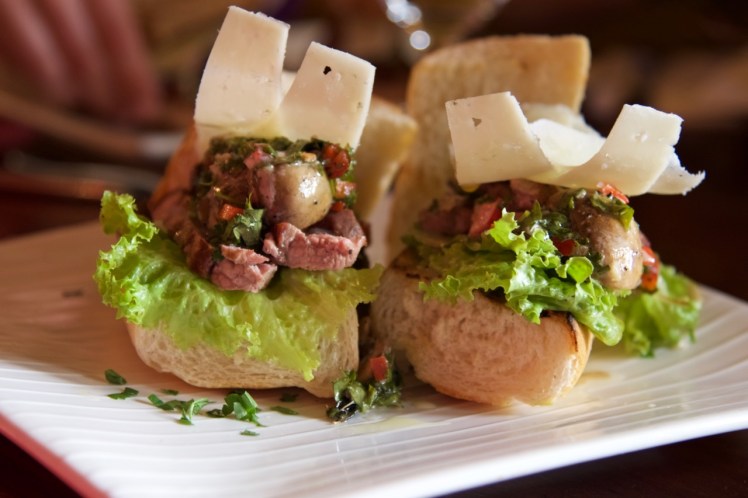
They even got dessert covered with pretty amazing French pastry techniques fused with local ingredients, like a mousse made with a local squash-like fruit, the name of which I can’t recall (also, their menu is not online)
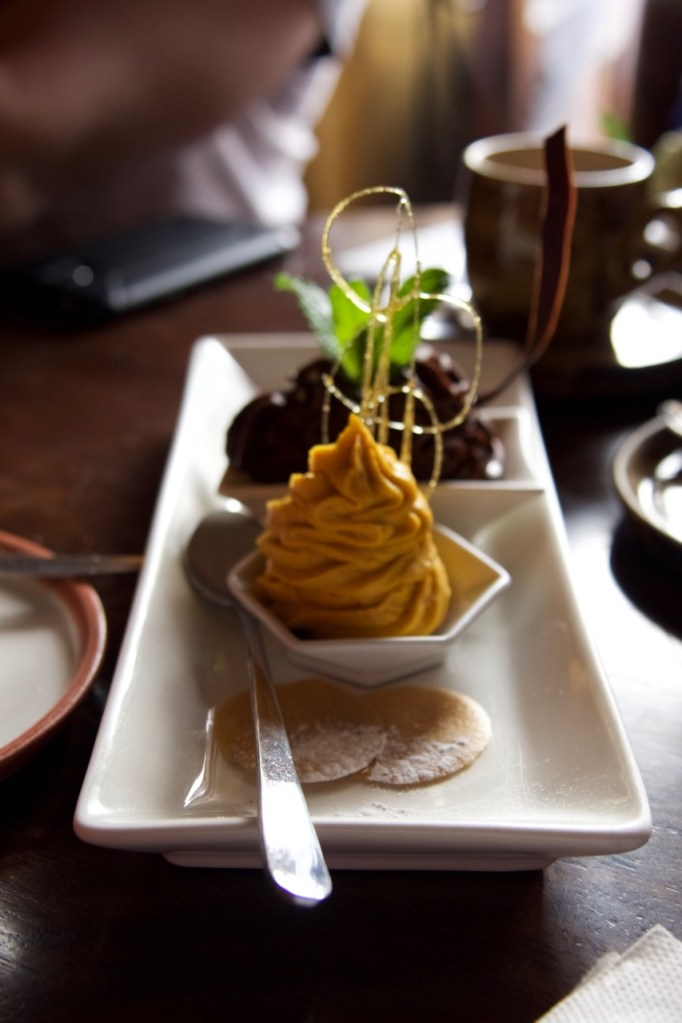
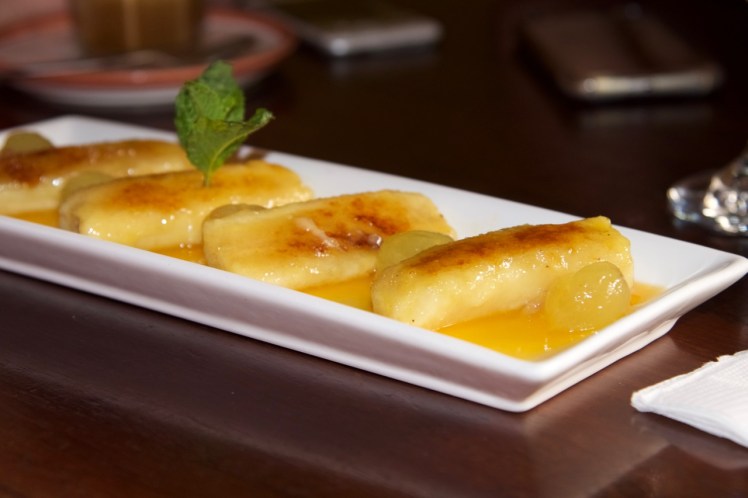
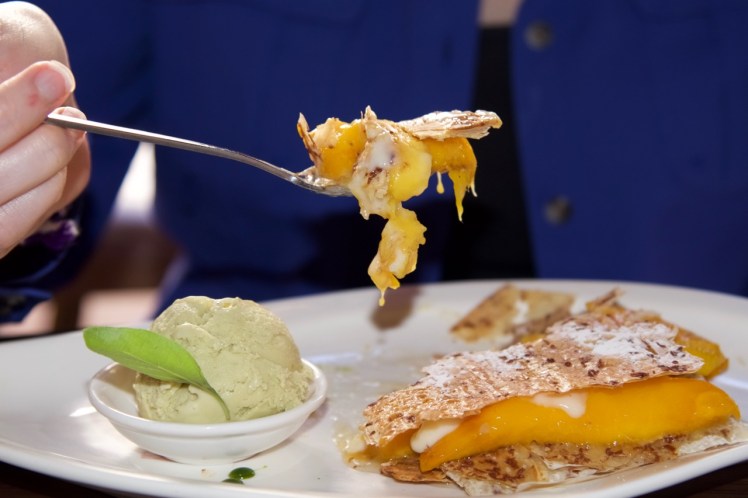
I did not order my own guinea pig, but instead had a bite of someone else’s, and I’ll be honest, it’s not an experience I’m likely to repeat. Simply put – there’s not much to it…to eat, that is. Also, I did have a guinea pig as a pet growing up…Enough about that.
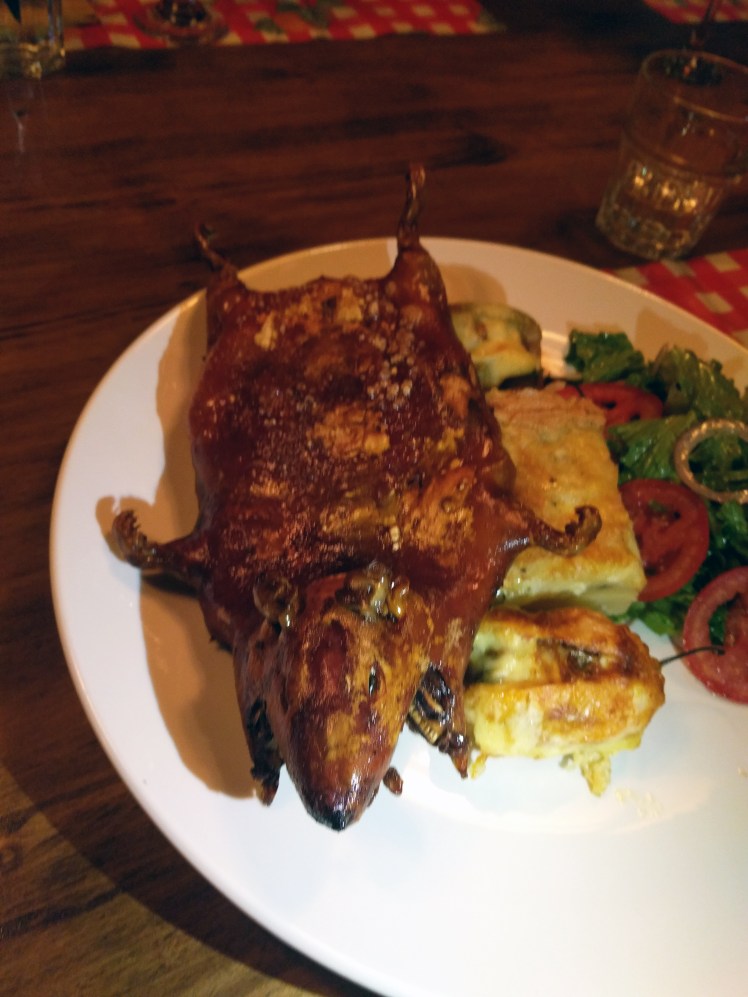
The Sacred Valley (Urubamba)
On to the more rustic side of things – we spent a day in Parque de la Papa, situated in an area known as the Sacred Valley, at an even higher elevation of 13,000 feet, where we enjoyed a breath-taking hike, literally – it took my breath away by all meanings of the word – the thin dry air had my heart pumping in my throat and the beauty of the landscape was awe-inspiring.
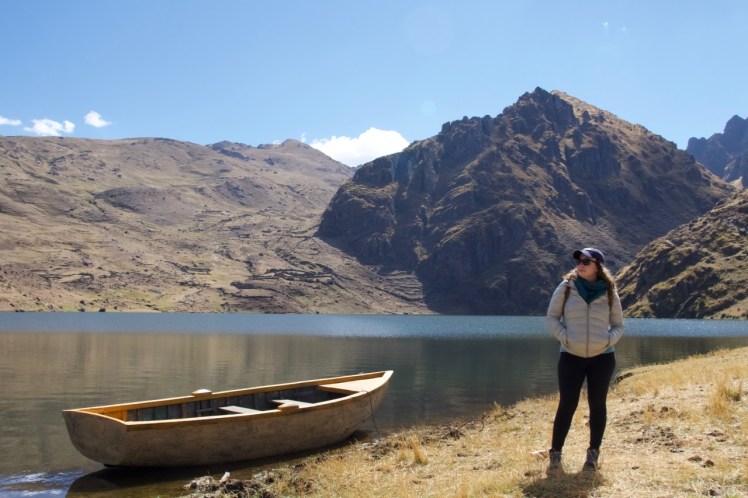
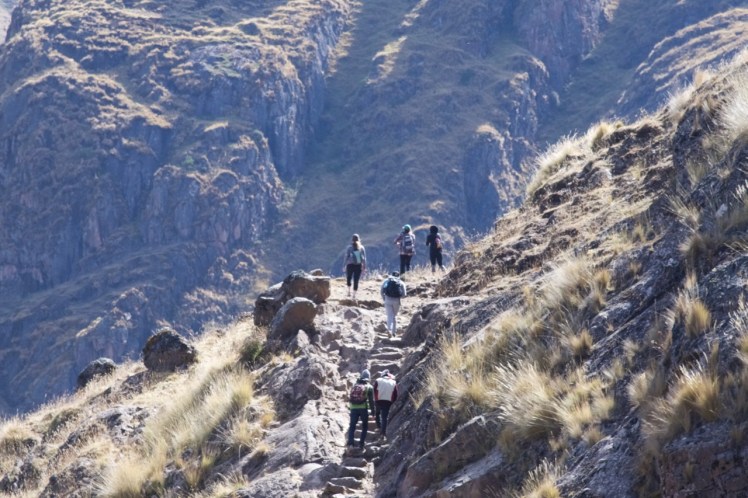
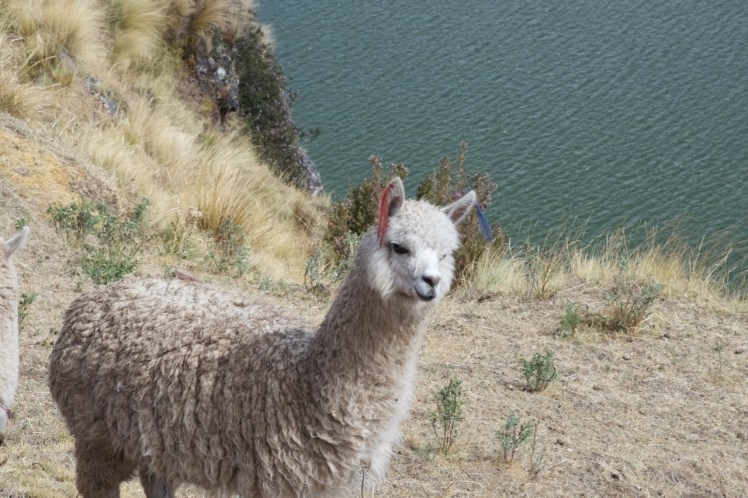
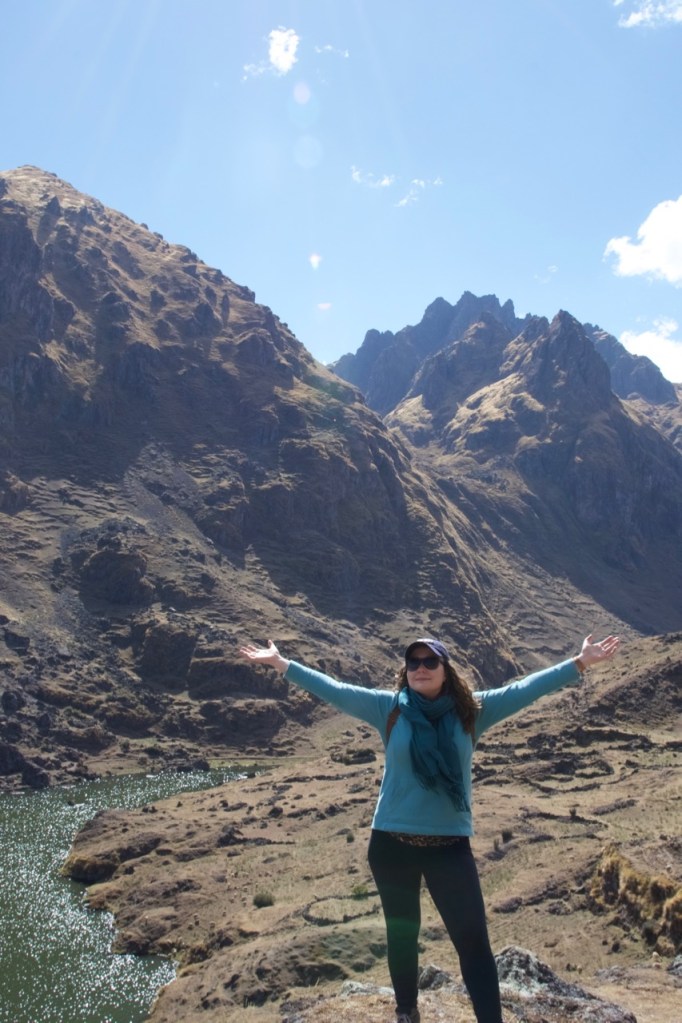
Parque de la Papa is an area of reserved land with a population of about 6,000 people consisting of six different communities. These communities are self-sustainable, practicing various farming methods to grow wheat, barley, and over 700 varieties of potatoes.
The Quechua people of these communities are dedicated to preserving this potato biodiversity by meticulously cataloging varieties and samples of each type of potato.
This information and samples are also sent to the International Potato Center in Lima for cataloging and research. The goal is to have enough potato seeds to save the world from hunger in an event of an apocalypse.

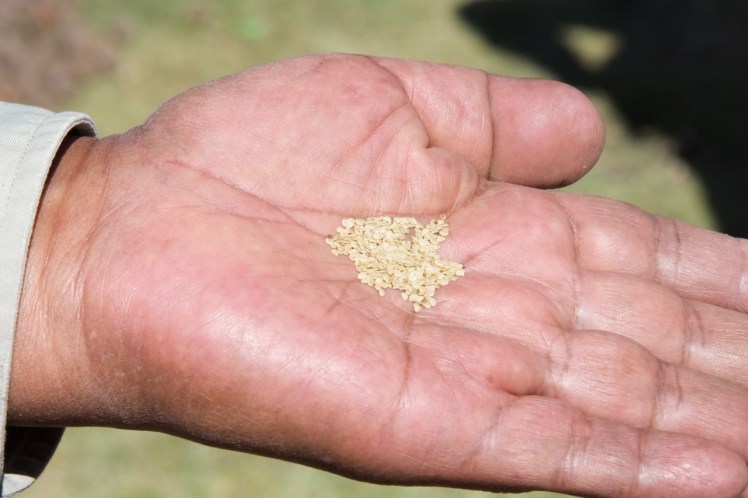
Upon our arrival, there was a spread of several different types of potatoes presented to us, based on their usability
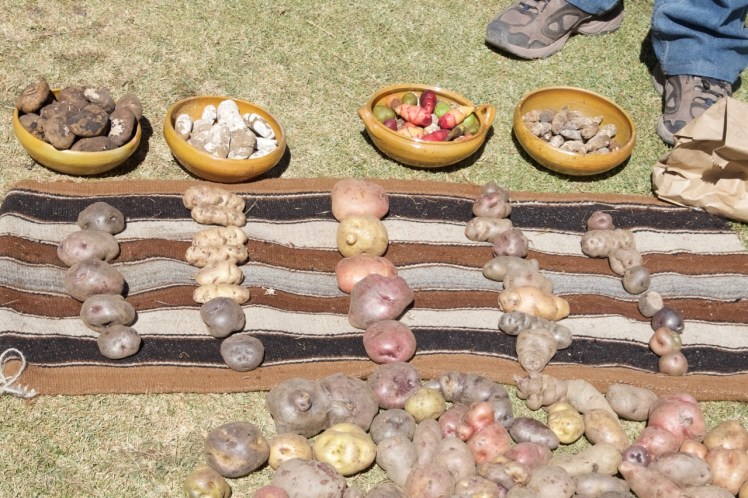
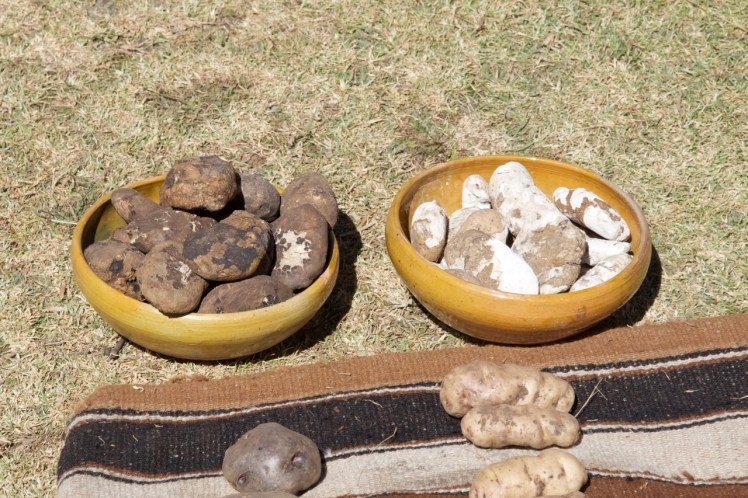
Two main methods are used to draw the water out of these potatoes, which then have a storage shelf life of several years – an ingenious method to preserve food for the winter or bad crop seasons. To rehydrate them, simply cook in water and-- voila--you have yourself a satiating, sustainable meal.
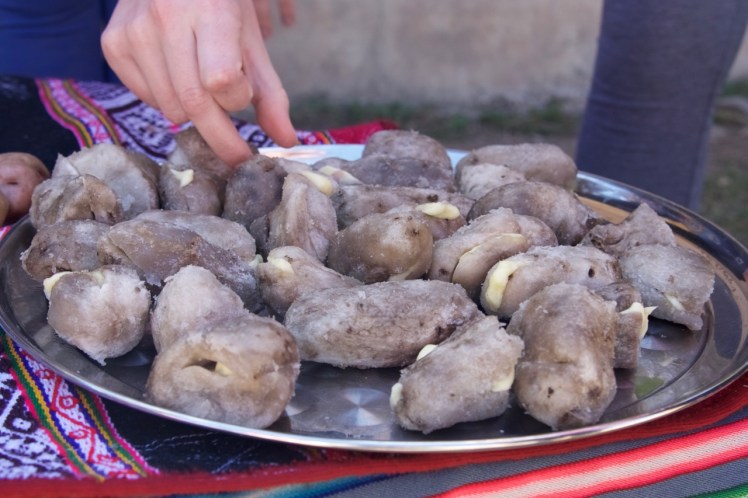
We were treated to a generous sampling of pre-hike snacks, consisting of what I would call “perfectly-al dente” cooked potatoes, with a salsa similar to a chimichurri, the above rehydrated potatoes stuffed with a local cheese, most similar to a queso fresco, a dessert made out of a fruit most closely-resembling a habanero pepper, but tasting like a peach, and some mint tea.
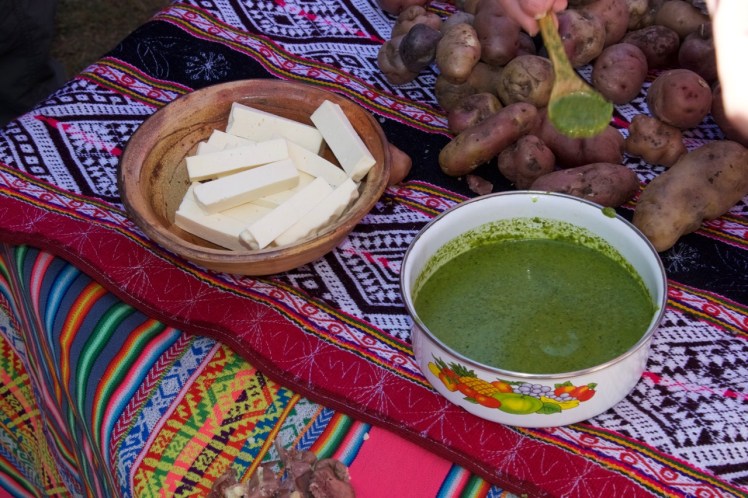
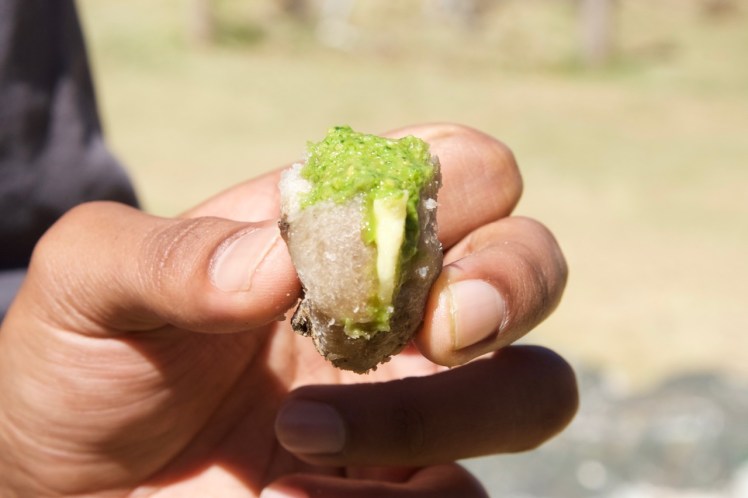

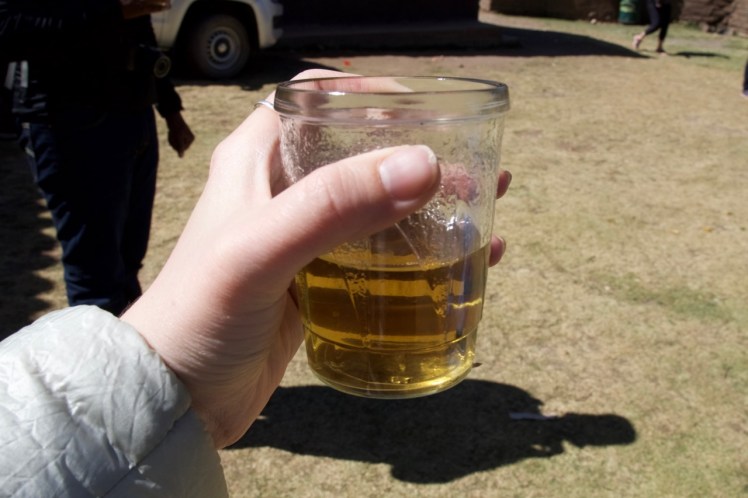
A meal I can have any day…the potato-loving Russian that I am.
Summary
It is quite evident that the food of the Andes is based around staple, sustainable crops like corn and potatoes and completed by proteins such as the alpaca, completely reflective of the climate and the seasonality of the landscape. I am absolutely in love with its simplicity and the clean, earthy flavors of the dishes I sampled.
Coming up next – travel food story of the Amazon.
Stay tuned!
P.S. Want to learn more about the adventure I went on to Peru? Check it out here!
Want more articles like this? Check out my blog, asavoryplanet.com.




.avif)






















